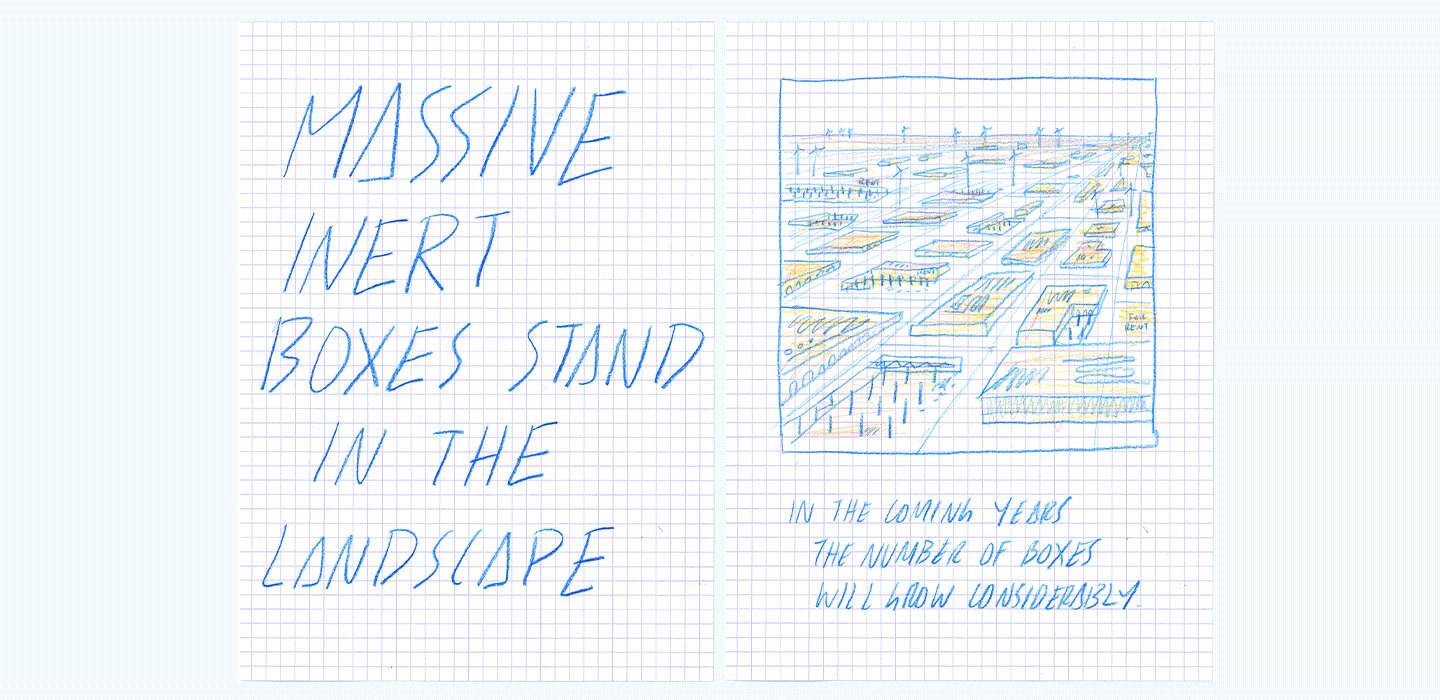The Berlage Post-Master Program in Architecture and Urban Design
Julianalaan 134
Faculty of Architecture and the Built Environment, Delft University of Technology
2628 BL Delft
The Netherlands
Architecture is created through buildings and words, polemics and practice, exhibitions and publications. Since its founding thirty years ago, The Berlage has connected leading practitioners and thinkers, with students eager to develop their own strong visions and keen to position themselves to act effectively within the discipline. As part of the TU Delft’s Faculty of Architecture and the Built Environment, The Berlage fosters a space of interaction between a select international group of students and a diverse shifting team of designers and cross-disciplinary team of experts.
Carrying Capacities
The Berlage announces the second installment of its three-year multiformat research program entitled “Carrying Capacities.” Originally conceived to describe the maximum population, program, or extraction an area can sustain without environmental depletion, the notion of “carrying capacity” is fundamental to designing any object, space, or territory. From consumption to necessity, from aspiration to exhaustion, this program speculates on architecture’s capacity to challenge the contemporary limits of material cultures and natural resources. Speculations span from the domestic interior to the productive hinterlands, exploring energy moderation, waste regeneration, environmental recovery, tourism mediation, immaterial manifestations, tectonic expressions, and consumer surplus.
The Berlage seeks applicants who are curious, proactive, imaginative, and prepared to both work individually and collectively across a series of design-based projects, proseminars, fieldwork excursions, and master classes, and who are eager to participate in a rich and diverse public program.
The program consists of three semesters of intensive full-time study after which students receive a Master of Science in Architecture and Urban Design degree, accredited by Delft University of Technology.
Fall 2020: Project NL
In the first semester students will explore the Netherlands’s renowned architecture culture as part of the Project NL design-based project. Following a series of itineraries to sites across the Netherlands, students engage with, and contribute to, the production of the local architecture culture. Observation and comparison will form the basis of architectural projects. From conversations with architects, planners, and manufacturers, to the documentation of landscapes, buildings, and construction sites, students will be challenged to speculate on their own future roles as architects and urban designers.
Spring 2021: Project Global
Students will examine the metropolitan conditions of Vienna and Mexico City during the second semester as part of the Project Global design-based project. The European metropolis will be introduced as an index for investigation for a non-European context. After neutralizing all traces of Eurocentric bias, the notion of “the global metropolis” will become the model of interrogation and the context for an architectural-urban project. Working with local authorities and experts from both cities, students will examine the motivations, designs, and politics of contemporary urban development, culminating in a speculative design proposal.
Fall 2021: Project Thesis
Students conclude their studies with an original design thesis project informed by design workshops and scholarly seminars with leading international designers, scholars, and experts. Based on tools, positions, and preoccupations refined in the first two semesters, this final term of study is dedicated to developing an individual thesis project in detail, under a collective framework. Students will be encouraged to be highly experimental and speculative, adopt a position between theory and practice, while creating visually compelling and intellectually rigorous projects, which can serve as starting points for further PhD research or initiating independent architectural practice.
Proseminars
Throughout the first two semesters, students will engage in a succession of proseminars taught by leading scholars and practitioners. Topics will include historical and contemporary strategies in architectural thinking, finance as a driver for architecture, and the spatial relationships between television and architecture.
Master classes
Twice a year students will work with world-renowned architects, designers, and thinkers in an intensive workshop setting to analyze a relevant issue in the built environment, experimenting with alternative formats of representation and dissemination. Recent master classes have been led by Assemble, Barry Bergdoll, Beatriz Colomina, Reinier de Graaf, Hans Kollhoff, Hideyuki Nakayama, Ippolito Pestellini Laparelli, Rural Urban Framework (RUF), and Felicity D. Scott.
Public program
Each semester, a public program will foster a climate of intellectual rigor and deliberate inquiry that challenges the traditionally conceived discipline of architecture. Recent lecturers include Barozzi Veiga, Bruther, Keller Easterling, Frida Escobedo, Tom Emerson, Grafton Architects, Rahul Mehrotra, Joan Ockman, Pezo von Ellrichshausen, Carlo Ratti, Peter St John, Marina Tabassum, and Mark Wigley.
Teaching staff
The Berlage offers a diverse teaching staff of practitioners, designers, scholars, and researchers, including Alessandra Cianchetta, Jean-Louis Cohen, Salomon Frausto, Reinier de Graaf, Michiel Riedijk, Léa-Catherine Szacka, Martino Tattara, and Thomas Weaver. Recent guest critics include Atelier Bow-Wow, Penelope Curtis, Dick van Gameren, Christine Hawley, Francesca Hughes, Kees Kaan, Sébastien Marot, Alessandra Ponte, Daniel Rosbottom, and David van Severen.
About the Berlage
Founded in 1990 as the Berlage Institute, the Berlage Center for Advanced Studies in Architecture and Urban Design, located in Delft, educates architects in a highly collaborative and experimental setting, characterized by independent study with guidance and input from and exchange with leading and emerging designers and scholars. Since 2012, students have benefitted from the world-class facilities of TU Delft, as well as close exchange with its academic staff and students.



